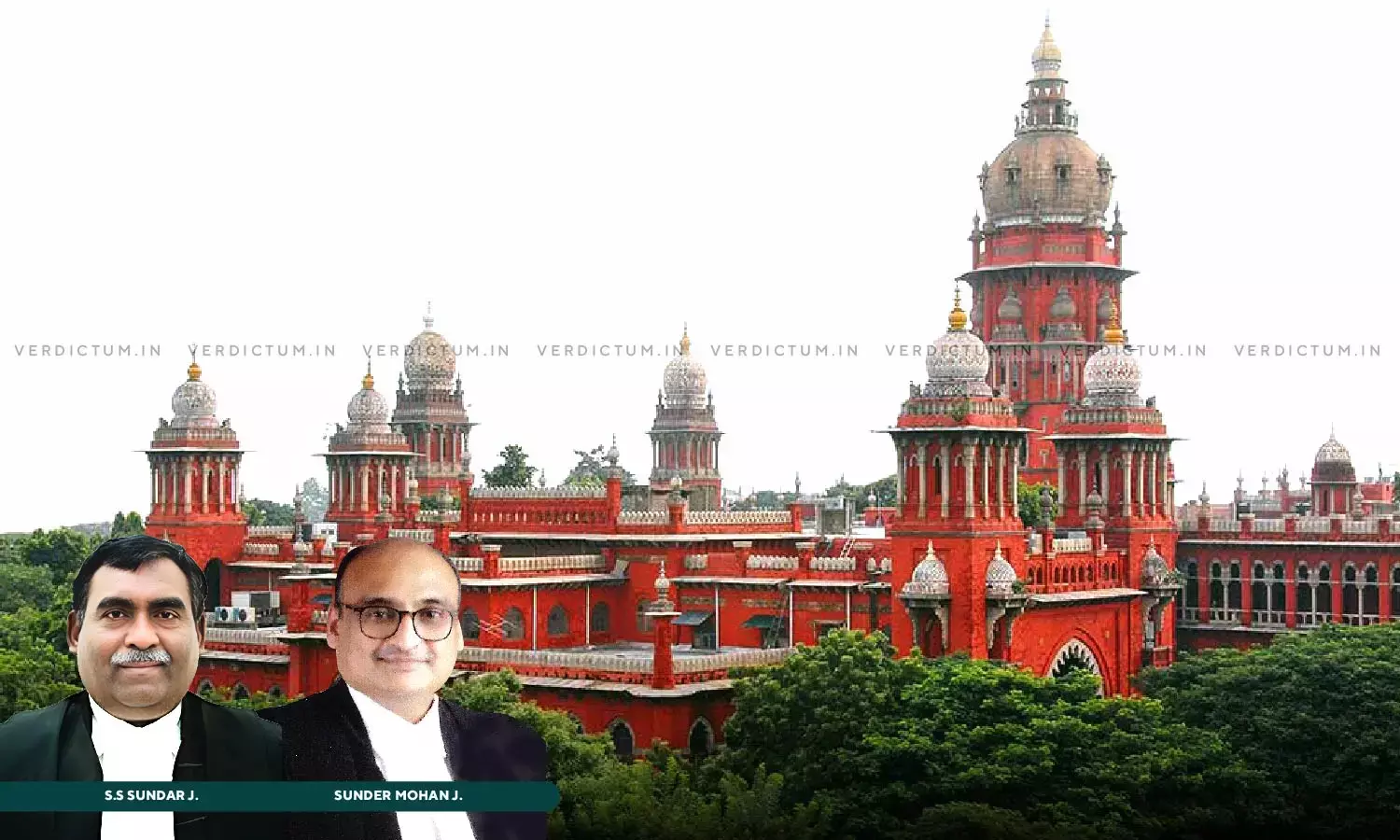UAPA| Madras High Court Grants Bail To PFI Members In Suspected Terrorism Case On Absence Of Direct Proof

A Madras High Court Bench of Justice SS Sundar and Justice Sunder Mohan has granted bail to eight men who were charged under the Unlawful Activities Prevention Act for conspiring to commit terrorist acts in different parts of India. These men allegedly belonged to the Popular Front of India.
In that context, the Court observed that, "every activity of PFI is suspected to be an of unlawful Association. When the activities of appellants are seen with a jaundiced eye, probably, the respondents seems to believe appellants as activists of unlawful Organization. In the absence of any material connecting appellants to the ''vision document'', every serious accusations appears to be based on probabilities, by assumption. In other words, the opinion formed is without any direct evidence or proof."
Senior Counsel T Mohan and Counsel I Abdul Basith appeared for the appellants, while ASG Ar. L Sundaresan appeared for the respondents.
In this case, the appellants were accused of conspiring to carry out terrorist acts against individuals from other religions, perceived as anti-Islamic. Their plan involved deploying "hit squads" to harm and kill these individuals, with the intention of threatening India's unity, integrity, security, and sovereignty, as well as instilling fear.
The appellants argued that the special court denied their bail application, citing a prima facie case without specific accusations or substantial evidence. They contended that their arrests were based on their membership in an organization that wasn't banned or declared unlawful at the time of their arrest. Furthermore, they claimed that the National Investigation Agency (NIA) couldn't file an FIR directly without a report from the State Government, as required by the National Investigation Agency Act of 2008.
On the other hand, the Additional Solicitor General argued that there was evidence indicating the involvement of the Popular Front of India (PFI) in various terrorist activities aimed at realizing their vision of establishing Muslim rule in India by 2047. The ASG pointed to physical training activities conducted by the organization and asserted that these actions could be considered acts of terrorism or preparations for terrorist acts, justifying the application of Section 18 of the Unlawful Activities (Prevention) Act and Section 43(D)(5) of the Act.
The High Court clarified that the word "preparatory" must be understood in the right context, and that any remote acts from which it cannot be definitely concluded that it was for the preparation of the terrorist act, cannot be called as preparatory acts within the meaning of Section 18 of the Unlawful Activities (Prevention) Act, 1967. Therefore, it was held that an act which is in the nature of preparatory, without an intention to commit a terrorist act attracting Section 15, will not be construed as an act to attract Section 18 of the UAPA. In that context, it was said that, "In the instant case, it is the allegation of the prosecution that training was given by the accused to various persons to throw beer bottles filled with water and to aim at objects. From this, the prosecution draws an inference that this training was imparted only to make petrol bombs later and use those petrol bombs for achieving the object of the accused. It is not the case of the prosecution that the accused was found in possession of any petrol bombs, in which case, it may be a proximate act and may be a preparatory act for the commission of terrorist act. Therefore, in order to bring any act as preparatory act to commit terrorist act, as stated earlier, it must be proximate to the intended result."
It was further observed that except for the FIR, no material had been produced before the Special Court to convince the Court regarding the possible involvement of any of the accused in the commission of offence under the provisions of UAPA. Critiquing the decision of the Special Court, the Court held that mere allegations are not sufficient to reject bail by invoking Section 43[D][5] of UAPA.
It was also clarified that the registration of an FIR by an officer in charge of a Police Station was not a sine quo non for the Central Government to direct investigation by the NIA. The court added that if FIR was to be made necessary for the Central government to direct investigation by the NIA, the words used in the section would become redundant.
Resultantly, the orders passed by the Special Court were set aside and bail was granted with a slew of conditions.
Cause Title: Barakathullah & Ors. vs Union of India
Click here to read/download the Judgment

